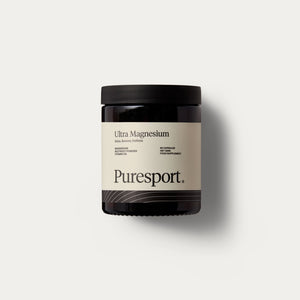If you’ve been researching supplements lately, it’s likely that you’ve heard of ashwagandha. If you don’t know what it does, then you’ll be happy you found this guide. We’re going to cover some of the most popular questions about this topic, including, “What is ashwagandha good for?” “Are there any ashwagandha benefits?” and more.
What is Ashwagandha?
Ashwagandha UK usage has increased dramatically as of late, but what is it in the first place? Ashwagandha is an evergreen shrub that can be found in Africa and Asia, and it has been a popular component in ayurvedic medicine for thousands of years. Unfortunately, in the eyes of modern science, this consists of simple anecdotal evidence.
Ashwagandha’s scientific name is withania somnifera, though it may also be known as winter cherry due to the red fruit that grows in its center. Along with its traditional use in ayurvedic medicine, ashwagandha is becoming used more and more frequently as a dietary supplement in the western world.
The name “somnifera” means that it induces sleep, and the name ashwagandha comes from two Sanskrit words, “ashva,'' which means horse, and “gandha,” which means smell. This is due to the plant itself smelling like a horse.
The shrub itself grows to between 35 and 75 cm tall, and the leaves usually grow to between 10 and 12 cm.
In spite of the perception that its use for centuries is anecdotal, ashwagandha is now being studied more and more frequently in scientific trials. We’ll discuss the results of these studies in further detail later on.
The plant itself typically isn’t used for its medicinal components, as the fruits and the leaves provide relatively little value in terms of treatment potential. However, the plant’s roots are known for their medical potential, and they are typically ground up and used as a powder that can be turned into a supplement.
What Does Ashwagandha Do?
Ashwagandha for Anxiety
One of the most well-known possible effects of ashwagandha is that it is able to help reduce anxiety and stress levels.
Studies have shown that ashwagandha is capable of controlling stress mediators such as cortisol, Hsp70, and JNK-1. Another factor that contributes to ashwagandha’s ability to regulate stress is that it reduces how active the HPA axis is, which is another system that is responsible for regulating stress responses.
Ashwagandha Benefits for Men
There have been multiple studies about the effects that ashwagandha can have on men, including its ability to increase male fertility as well as the amount of testosterone that they have. One study showed that overweight men between 40 and 70 who took ashwagandha had increased testosterone over those who took placebos.
It has also been shown to increase the sperm count level of men who have low fertility, but other studies in this review went on to mention that it can also increase sperm count in men with normal fertility. Unfortunately, scientists have also stated that higher-quality studies are required to determine whether the results are up to poor testing methods or not.
Ashwagandha Benefits for Female
Ashwagandha’s benefits aren’t only limited to men, however, as there are also a few benefits of it that are specific to females. For example, this study showed that ashwagandha can help women who are dealing with sexual dysfunction in a variety of different ways, though the results were self-reported.
Some of the improvements in sexual function included improved orgasms, enhanced arousal, additional lubrication, and enhanced overall satisfaction. Perhaps more interestingly, ashwagandha helped these women increase their number of successful sexual encounters as well as reduced distress about sexuality and their sex lives.
Ashwagandha Supplement Forms
Ashwagandha Powder
Ashwagandha powder is the most common form that the supplement is found in because it requires the least processing. This is due to the fact that the supplement is essentially the ashwagandha root taken and ground up into a fine powder that can then be consumed or used in a variety of ways.
Ashwagandha Gummies
Ashwagandha gummies are a popular choice amongst people who don’t like the taste of the powder, which is quite earthy. While these gummies are less versatile than ashwagandha powder, they’re a lot easier to use on short notice since you can just pop a few of them in your mouth as part of your morning routine.
Ashwagandha Tea
Ashwagandha tea is another popular method of consumption for this supplement, and it essentially consists of adding ashwagandha powder to boiling water, much like when preparing matcha. This makes it easier to consume than straight powder but does not mitigate the strong flavour.







